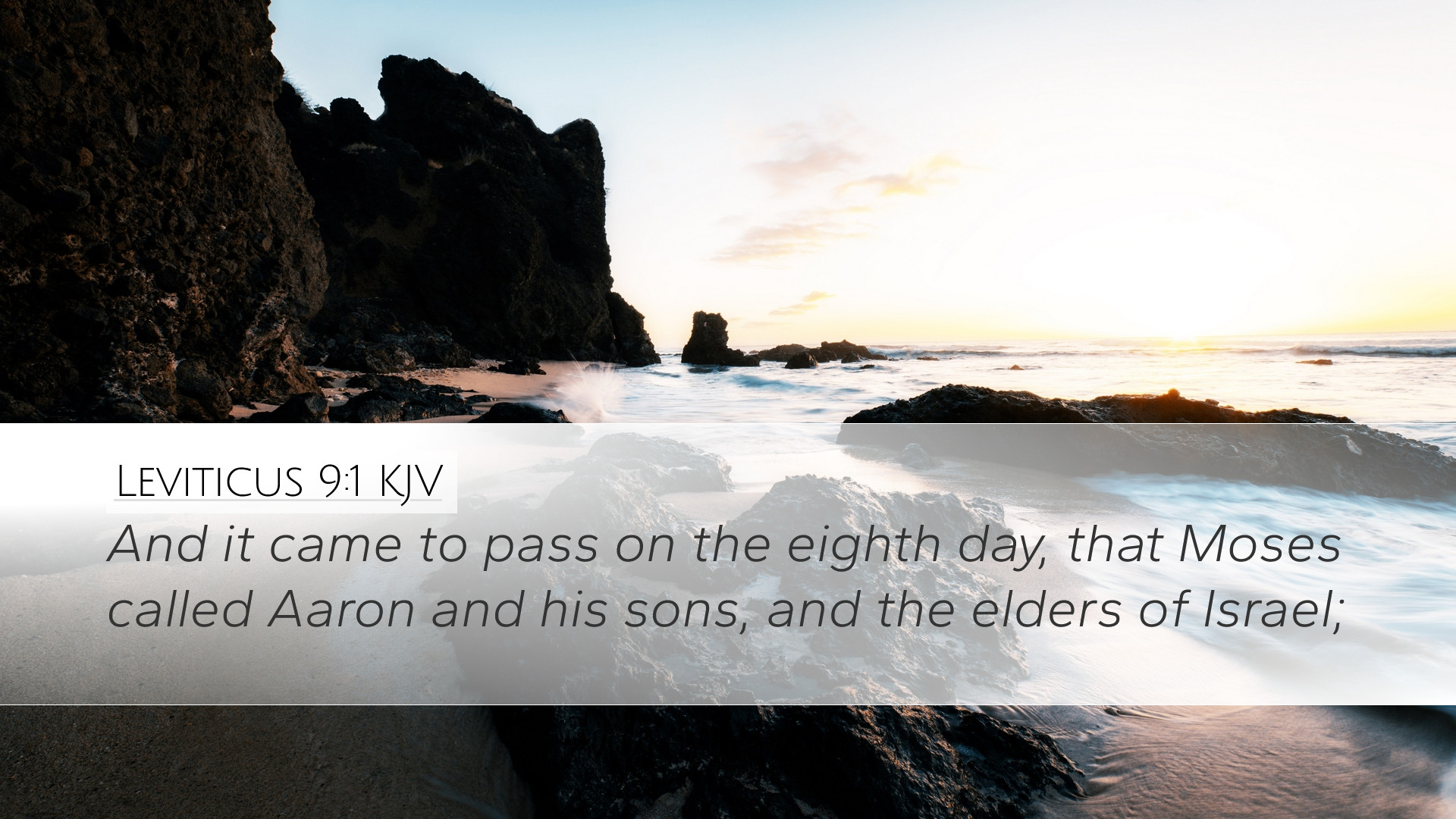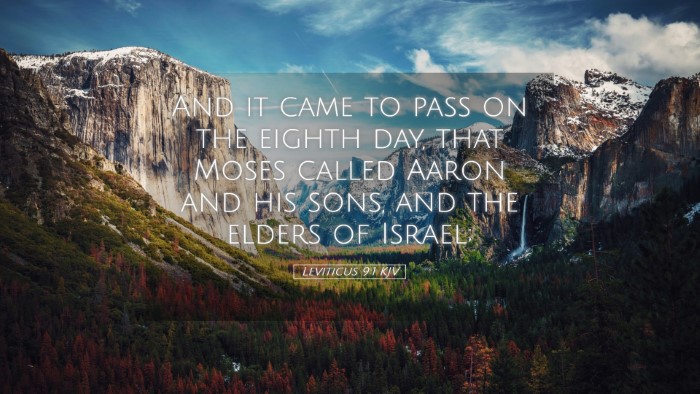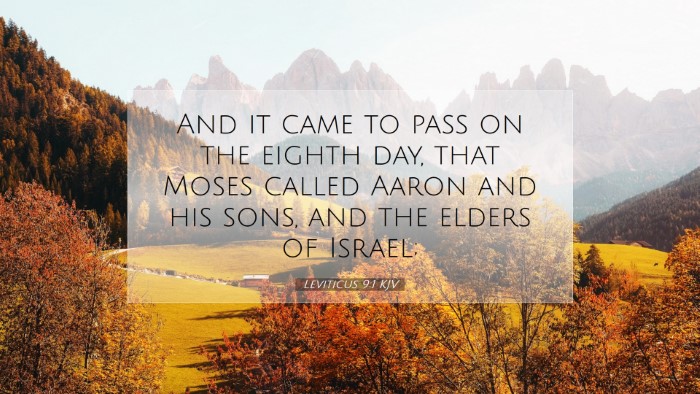Commentary on Leviticus 9:1
Leviticus 9:1 states, "On the eighth day Moses called Aaron and his sons and the elders of Israel."
This verse marks a significant transition in the early chapters of Leviticus, highlighting the beginning of formal priestly service following the consecration of Aaron and his sons.
The context of this verse is essential for understanding the organization of worship in Israel and the role of the Levitical priesthood.
Historical Context
According to Matthew Henry, the book of Leviticus serves as a detailed manual on holiness and the regulations governing the priesthood.
Henry emphasizes that the events in chapter 9 occur after the consecration of Aaron, which was a pivotal moment in Israel’s spiritual leadership.
The eighth day mentioned reflects a significant completion of seven days of consecration, indicative of divine perfection and the establishment of God’s order through the priesthood.
The Role of Moses
In this passage, Moses takes on a key leadership role. Albert Barnes observes that Moses's actions demonstrate his authority and the mediatorial role he occupies between God and the people.
By calling Aaron and his sons, Moses is setting the stage for the formal inauguration of the priestly ministry. It is a moment of divine instruction where Moses serves as God’s spokesperson.
The Significance of the ‘Eighth Day’
The reference to the eighth day is particularly noteworthy. Adam Clarke points out that the number eight often symbolizes new beginnings and the start of something renewed.
This idea aligns with the broader themes of Leviticus, where God’s instructions are aimed at restoring a right relationship with His people through sacrificial worship and righteousness.
Spiritual Implications
Leviticus 9:1 also draws attention to the importance of leadership in worship. The act of summoning Aaron, his sons, and the elders demonstrates the collective responsibility within the covenant community.
As commented by Henry, the people needed leaders who could guide them in the proper observance of God’s commandments, which were intended not only for individual worship but also for communal identity and holiness.
The Call to Worship
-
Authority in Worship: Moses's call illustrates the hierarchical structure in Israel's worship practices, where divine authority established through Moses necessitated the proper conduct of sacrifices and rituals.
-
Community Responsibility: The assembly of elders signifies communal involvement in worship practices, reinforcing the notion that worship is not solely individualistic but a shared endeavor that reflects collective faith and obedience.
-
Preparation for Divine Encounter: This moment signifies a preparation for divine encounter, emphasizing the seriousness and sacredness of approaching God. The structure of worship set in motion through the tasks assigned to Aaron and his sons is foundational for Israel’s relationship with God.
Liturgical Framework
This verse sets the stage for the consecration offerings that Aaron and his sons will perform. Barnes clarifies that the rituals they will undertake are a means through which the community could atone for their sins and seek God’s favor.
The meticulous details that follow in the subsequent verses relate to various sacrifices, thus establishing a pattern that would permeate Israel's sacred gatherings.
Application for Today
For contemporary readers, Leviticus 9:1 invites reflection on the role of leadership in worship and the importance of community in faith practices.
Pastors and scholars can glean insights regarding the structure of worship and the significance of being called to lead in sacred spaces.
The themes of renewal and divine authority provide a framework for understanding the modern church's role in guiding believers toward a deeper worship experience.
Conclusion
In conclusion, Leviticus 9:1 encapsulates a moment of critical importance in the life of Israel, symbolizing both a transition into a new phase of worship and the establishment of the priesthood's pivotal role.
The insights drawn from Matthew Henry, Albert Barnes, and Adam Clarke encourage leaders and congregants alike to appreciate the profundity of worship, the sanctity of community leadership, and the continuous need for renewal before God.


